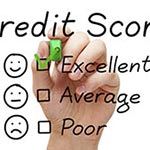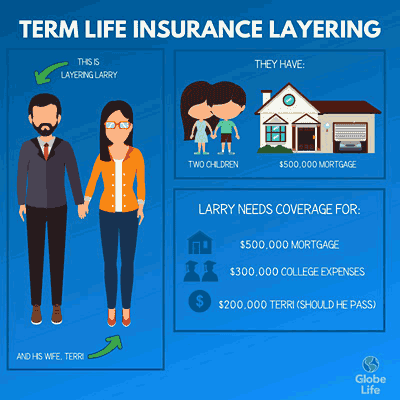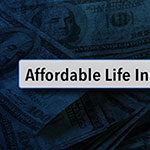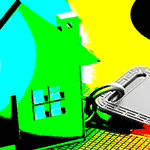The Pros And Cons Of HARP Refinance

If you are like millions of other homeowners who are making monthly mortgage payments, you’ve probably heard about the Home Affordable Refinance Program, also known as HARP. The HARP mortgage program allows homeowners to refinance into low mortgage interest rates even if the property has decreased in value or is upside down. It is estimated that millions of homeowners owe more money on their mortgage payments than their homes are actually worth, mainly due to the recession and the current crisis in the housing market.
The HARP mortgage was established in 2009 by the Government for homeowners whose mortgage is backed by either Fannie Mae or Freddie Mac. Even though this is a government mortgage program, the actual lending is done by qualified mortgage lenders.
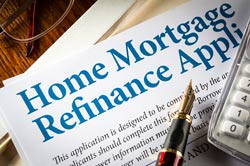
A great benefit of the program is that under HARP, the value of your home is not a factor in your refinancing qualification. This is good news for the millions of homeowners who would otherwise be restricted from refinancing because of newly devalued properties. Even those with second mortgages can also easily qualify for refinancing under the HARP program.
One of the downsides, however, is there are certain guidelines that must be met in order to qualify for the refinance program. One of those guidelines is that your mortgage payments must be current and up to date without any late payments in the last six months. Furthermore, you cannot have any more than one late mortgage payment during the twelve months prior to your application.
Some of the positive reasons the HARP program is a good deal for homeowners is that regardless of whether or not your home has gone down in value since its purchase, you may still qualify for refinancing. HARP has already helped thousands of homeowners across the country. One of the reasons that HARP is a great program is that there are no appraisal costs or on-site appraisers. The appraisal value of your home is calculated by an automated system through Fannie Mae or Freddie Mac.
Another benefit under the HARP program is that with good credit scores, you can get excellent terms. This means a zero-cost refinance at the lowest current interest rates available, regardless of how much your home may have revalued.
A HARP refinance agreement is also treated the same as any other type of mortgage refinance in that you won’t be penalized for qualifying and making lower payments under a HARP contract.
Under the program, you do need to be aware that if you have or have had any credit problems, or if you have reached the limit on your credit cards, you may not get the terms that you want. You should keep in mind that it’s very possible your lender may not agree to the new terms, especially if you have high balances on your cards or have existing loans.
Whether or not you choose to refinance under the HARP program, it is important to completely understand all the pros and cons of the HARP agreement. If you qualify for the program, it is possible to substantially lower your monthly payments and save thousands in interest fees.
You might also be interested in...
-
 7 Steps To Choosing Health Insurance
7 Steps To Choosing Health Insurance
-
 8 Steps to Protecting Yourself Against Identity Theft
8 Steps to Protecting Yourself Against Identity Theft
-
 Life Insurance You Can Afford
Life Insurance You Can Afford
-
 Are Negative Habits Keeping You From Your Financial Goals?
Are Negative Habits Keeping You From Your Financial Goals?
-
 Best Retirement Tips for the Younger Generations
Best Retirement Tips for the Younger Generations
-
 Calculating Life Insurance Needs
Calculating Life Insurance Needs
-
 Can You Climb Your Mountain of Debt?
Can You Climb Your Mountain of Debt?
-
 Be Careful! You Just Might Get What You Paid For With These Cheap Life Services
Be Careful! You Just Might Get What You Paid For With These Cheap Life Services
-
 Eating On A Tight Budget
Eating On A Tight Budget
-
 Five Costly Disasters Your Auto Insurance May Not Cover
Five Costly Disasters Your Auto Insurance May Not Cover
-
 Five Practical Steps to Repair Your Credit
Five Practical Steps to Repair Your Credit
-
 Five Ways to Cut Back on Your Grocery Bills
Five Ways to Cut Back on Your Grocery Bills
-
 Four Bad Financial Habits You Need To Break Now
Four Bad Financial Habits You Need To Break Now
-
 Getting Out of Debt: Start Taking Control of Your Finances Again
Getting Out of Debt: Start Taking Control of Your Finances Again
-
 Good Financial Habits
Good Financial Habits
-
 How To Deal With Debt During A Divorce
How To Deal With Debt During A Divorce
-
 How To Get By On Social Security
How To Get By On Social Security
-
 How to Host an Inexpensive Dinner Party
How to Host an Inexpensive Dinner Party
-
 How to Rebuild Your Credit and Increase Your Score
How to Rebuild Your Credit and Increase Your Score
-
 Insurance Myths
Insurance Myths
-
 Is it Worth it to Get a Credit Monitoring Service?
Is it Worth it to Get a Credit Monitoring Service?
-
 Making Life Transitions
Making Life Transitions
-
 The Pros And Cons Of HARP Refinance
The Pros And Cons Of HARP Refinance
-
 Ten Essential Tips for Managing Your Personal Finances
Ten Essential Tips for Managing Your Personal Finances
-
 The Importance of Life Insurance You Can Afford
The Importance of Life Insurance You Can Afford
-
 Top Financial Mistakes That Can Spoil Your Retirement
Top Financial Mistakes That Can Spoil Your Retirement
-
 Top Ten Cheap Ways to Keep Your Kids Entertained
Top Ten Cheap Ways to Keep Your Kids Entertained
-
 What's the Point of Points?
What's the Point of Points?
-
 4 Ways To Treat Rosacea Naturally
4 Ways To Treat Rosacea Naturally
-
 4 Natural Remedies For Varicose Veins
4 Natural Remedies For Varicose Veins
-
 8 Ways To Grocery Shop On A Budget
8 Ways To Grocery Shop On A Budget
-
 The Holidays On A Budget
The Holidays On A Budget
-
 Tips For Women On Saving For Retirement
Tips For Women On Saving For Retirement
-
 Home Remedies For Heartburn
Home Remedies For Heartburn
-
 8 Great Uses For Tea Tree Oil
8 Great Uses For Tea Tree Oil
-
 The Best Natural Treatments For Sinus Sufferers
The Best Natural Treatments For Sinus Sufferers
-
 Old Medical Hacks That Still Work
Old Medical Hacks That Still Work
-
 How To Shop Healthy On A Budget
How To Shop Healthy On A Budget
-
 The Best Home Remedies For Sunburn
The Best Home Remedies For Sunburn
-
 Charitable Giving On A Budget
Charitable Giving On A Budget
-
 Money-Saving Tips That Actually Work
Money-Saving Tips That Actually Work
-
 10 Ideas For Budget-Friendly Family Fun
10 Ideas For Budget-Friendly Family Fun
-
 Can a Reverse Mortgage Save Your Monthly Budget?
Can a Reverse Mortgage Save Your Monthly Budget?
-
 How to Get Free Money For College
How to Get Free Money For College
-
 How To Have A Humble Holiday
How To Have A Humble Holiday
-
 Top 4 Ways To Save For College Education
Top 4 Ways To Save For College Education
-
 Can you borrow money from a life insurance policy?
Can you borrow money from a life insurance policy?
-
 Cashing Out a Life Insurance Policy
Cashing Out a Life Insurance Policy
-
 Can I Sell My Whole Life Insurance Policy?
Can I Sell My Whole Life Insurance Policy?
-
 Layering Term Life Insurance Could Save You Money
Layering Term Life Insurance Could Save You Money
-
 5 Tips for Finding Life Insurance That Fits Your Budget
5 Tips for Finding Life Insurance That Fits Your Budget
-
 Why is Life Insurance Important for Someone Getting a Mortgage?
Why is Life Insurance Important for Someone Getting a Mortgage?
-
 Can Getting a Life Insurance Quote Affect My Credit Score?
Can Getting a Life Insurance Quote Affect My Credit Score?
-
 How Much Should I Pay for Whole Life Insurance vs Term Life Insurance?
How Much Should I Pay for Whole Life Insurance vs Term Life Insurance?
-
 Term Life Insurance for Young Adults: When Is the Right Time to Buy?
Term Life Insurance for Young Adults: When Is the Right Time to Buy?

 Insurance products are available in New York from
Insurance products are available in New York from  Insurance products are available in your state from
Insurance products are available in your state from 























